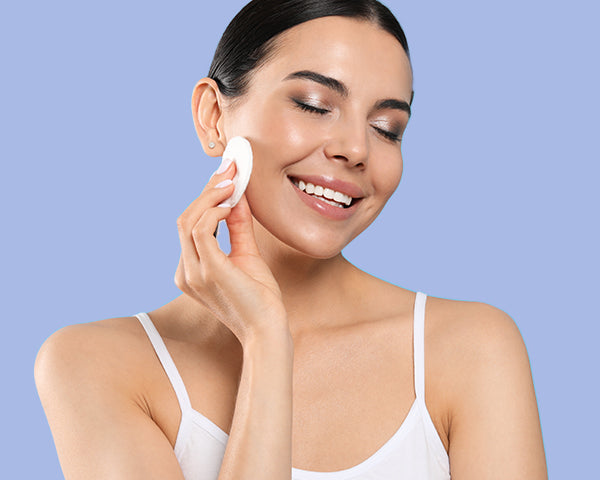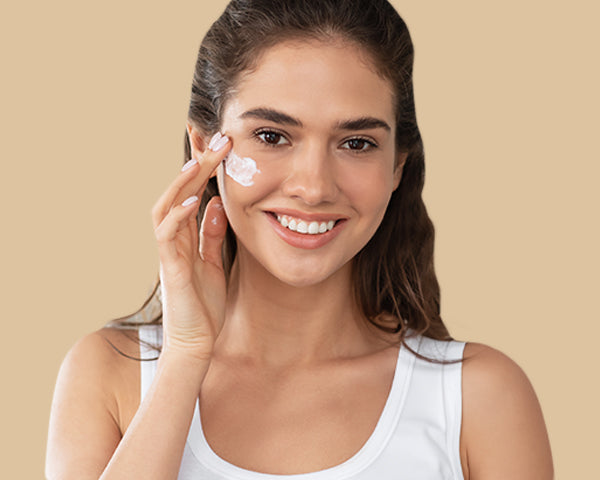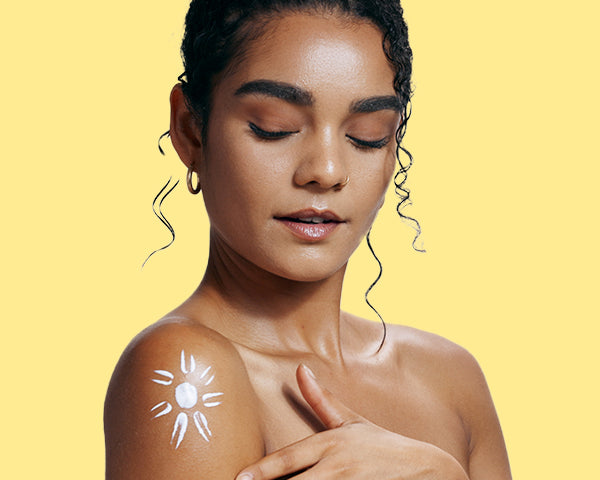In This Blog
- Why Choosing the Right Sunscreen Matters
- SPF: What It Really Means for Your Face
- Best Sunscreen for Oily or Acne-Prone Skin
- Best Sunscreen for Dry or Sensitive Skin
- Best Sunscreen for Combination and Normal Skin
- How to Choose Sunscreen: A Beginner’s Checklist
- Final Thoughts: Commit to Daily Protection
Introduction: Why Choosing the Right Sunscreen Matters
If you've ever found yourself staring at the sunscreen aisle, overwhelmed by the sheer number of options, you're not alone. From gels to creams, mineral to chemical, and SPF 15 to 100—it’s a lot. But here’s the truth: picking the right sunscreen isn’t just about avoiding sunburn. It’s about protecting your skin against premature aging, pigmentation, and even skin cancer. Yet not every sunscreen works for everyone. Your skin type—whether oily, dry, combination, or sensitive—plays a huge role in how effective and comfortable a sunscreen feels and performs. This article breaks down how to choose sunscreen tailored specifically to your skin, explains what SPF is best for your face, and helps you find the best sunscreen for everyday use without feeling greasy or irritated. Consider this your beginner-friendly, easy-to-understand sunscreen survival guide.

Understanding SPF: What It Really Means for Your Face
You’ve seen SPF numbers on every sunscreen bottle—but what do they actually mean? SPF stands for Sun Protection Factor, and it measures how well the sunscreen protects your skin from UVB rays, the ones that cause sunburn and can contribute to skin cancer. For example, if your unprotected skin would normally burn after 10 minutes in the sun, SPF 30 means you could stay out 30 times longer—about 300 minutes—without burning. But remember, that’s under ideal conditions.
Now, what SPF is best for face use? Dermatologists generally recommend SPF 30 or higher for daily wear. If you’re spending time outdoors, sweating, or swimming, go for SPF 50 and make sure it's water-resistant. Higher isn’t always better, though. SPF 100 sounds magical, but it doesn’t offer double the protection of SPF 50—it just extends the time slightly. Also, no sunscreen is truly waterproof or sweat-proof, so reapplying every two hours is key. Bonus tip: always look for “broad-spectrum” on the label. That means it protects against both UVA (aging) and UVB (burning) rays.

Best Sunscreen for Oily or Acne-Prone Skin
If your face turns into an oil slick by noon, you need a sunscreen that won’t add to the grease or trigger breakouts. The best sunscreen for oily skin is typically oil-free, lightweight, and labeled “non-comedogenic” (meaning it won’t clog pores). Gel-based or water-based sunscreens are great because they feel fresh and matte. Look for ingredients like niacinamide (helps control oil) and zinc oxide (soothes acne and offers sun protection).
Chemical sunscreens absorb UV rays, while mineral (physical) ones sit on top of your skin and reflect them. For oily skin, mineral sunscreens with zinc oxide or titanium dioxide are usually better tolerated—they also offer instant protection. Products with a matte finish are a plus, especially under makeup. And don’t skip sunscreen just because you’re worried about shine—UV rays increase sebum production and can worsen acne over time. A good rule of thumb is: if it feels weightless, disappears into your skin, and doesn’t cause new pimples—it’s a keeper.

Best Sunscreen for Dry or Sensitive Skin
Dry or sensitive skin needs extra TLC (Thin Layer Chromatography), especially when choosing sunscreen. Many traditional sunscreens can sting, itch, or worsen flakiness. That’s why the best sunscreen for dry skin is one that includes hydrating ingredients like hyaluronic acid, glycerin, ceramides, or squalane. These moisturize your skin while offering UV protection, so you get a two-in-one benefit.
Avoid alcohol-based or gel sunscreens—they can further dry out your skin. Instead, go for cream-based or lotion sunscreens with a soothing formula. Mineral sunscreens are also a good bet for sensitive skin, particularly those labeled as hypoallergenic or fragrance-free. Watch out for sunscreens with parabens, or dyes—these can cause irritation or allergies. Some great choices even come in tinted versions that double as makeup base and provide added coverage for redness. If your skin feels calm, hydrated, and protected post-application, you’ve likely found your winner.

Best Sunscreen for Combination and Normal Skin
If your skin can’t make up its mind—dry in some areas, oily in others—you’re not alone. Combination skin is common, and the best sunscreen for all skin types, especially combo skin, strikes a balance between hydrating and oil-controlling. Lightweight lotion or fluid textures work best, as they neither dry you out nor feel greasy.
Look for multi-functional sunscreens that contain antioxidants like vitamin C or green tea extract. These help protect your skin from free radicals caused by sun exposure and pollution. For normal skin types, you have more flexibility—you can experiment with textures and ingredients to see what feels best. A sunscreen with a dewy finish might suit you on dry days, while a mattifying one could work better in humid weather. Either way, consistency is key. No matter your skin type, applying the best sunscreen for everyday use—even when you’re mostly indoors—can prevent long-term damage like uneven skin tone, fine lines, and loss of elasticity.

How to Choose Sunscreen: A Beginner’s Checklist
So, how do you pick the right sunscreen without second-guessing yourself? Use this simple checklist:
- Know your skin type - oily, dry, combination, or sensitive.
- Choose SPF 30 or higher – Choose SPF 30 or higher – ideally broad-spectrum.
- Look for added benefits - like hydration, oil control, or antioxidants as needed.
- Reapply every 2 hours - especially outdoors or after sweating/swimming.
- Don’t skip cloudy days - UV rays are still active.
Also, test a small patch before full application if you have sensitive skin. When in doubt, consult a dermatologist—especially if you’re managing skin conditions like rosacea or eczema. Remember: your sunscreen should feel like a skincare hero, not a chore. The right one becomes something you want to apply every single day.
Final Thoughts: Commit to Daily Protection
Sunscreen isn’t just a summer accessory—it’s a year-round necessity. Whether you're stepping out into the blazing sun or just sitting near a window, UV rays are always around. Finding the best sunscreen for everyday use that fits your skin type can make all the difference between healthy, glowing skin and long-term damage.
Now that you know exactly how to choose sunscreen based on your unique skin needs, you’re already one step ahead of the game. Make it a daily ritual, like brushing your teeth or drinking water. Because when it comes to skin health, prevention is always better than cure—and sunscreen is your first line of defense.

















